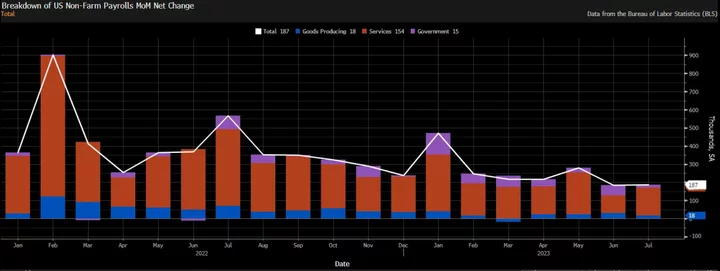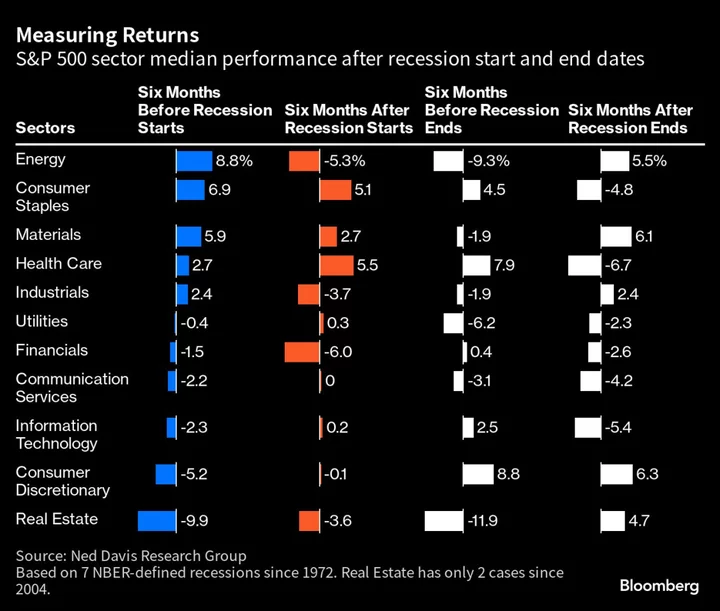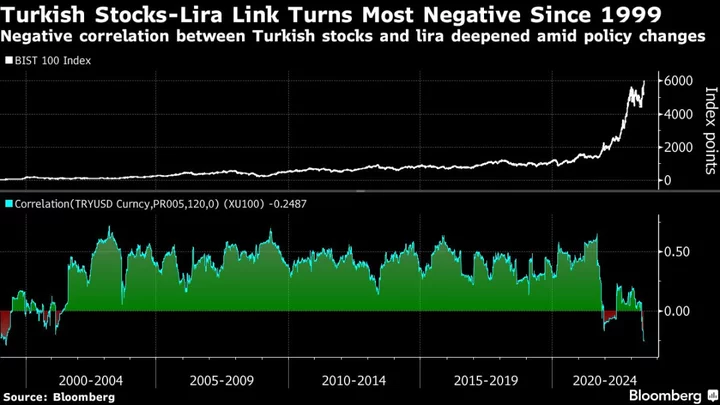Former Treasury Secretary Lawrence Summers said that while the path to a soft landing for the US economy looks more likely than it previously did, his concern now is the danger of inflation picking up steam again.
“I don’t think we can yet be confident that we’re not going to see a real acceleration of inflation at some point down the road,” Summers said on Bloomberg Television’s Wall Street Week with David Westin. “That’s the thing that I’m focused on.”
Summers spoke shortly after the July jobs report, which showed an unexpected drop in the unemployment rate and a bigger-than-forecast gain in average hourly earnings, alongside a smaller bump in payrolls than economists predicted. He highlighted the wage trend as out of sync with a 2% underlying inflation path.
“If you look at wage inflation, it was faster for the month than for the quarter, faster for the quarter than for the year,” said Summers, a Harvard University professor and paid contributor to Bloomberg TV.
While hourly earnings in July were 4.4% higher than the same month a year ago, when computing an annualized rate comparing them with June, Summers said the figure is closer to 5%.
Looking at wage and productivity trends, the data are “pointing to an underlying inflation rate in 3.5% range — and it may not be decelerating,” Summers said.
The latest monthly readings for inflation showed a 3% year-on-year increase for June in the consumer price index series, with a 4.8% pace excluding volatile food and energy costs. The so-called PCE gauge showed 3% headline and 4.1% core rates. All four figures showed the slowest inflation since 2021.
“The numbers have come in a bit better over the last few months than I would have guessed,” Summers said. He also said that “it probably looks like there’s a better chance” of a soft landing in the economy — where the US sees inflation decelerating while avoiding a recession — than was the case several months ago.
Still, the former Treasury chief cautioned that “I find the declarations of victory by some to be substantially premature.” He applauded Federal Reserve policymakers for continuing being “prepared to move” after 16 months of interest-rate hikes. “I’m glad that the Fed is not among those who are declaring victory,” he said.
Budget Challenge
On the fiscal side, Summers discounted the relevance of the US losing the top AAA grade at Fitch Ratings this week, saying that ratings firms typically are behind financial markets in their assessments of credit quality.
But he reiterated his concerns about the longer-term US budget-deficit trajectory. The benchmark projections from the Congressional Budget Office are likely to prove optimistic, he reiterated. The CBO has projected a budget gap amounting to 6.4% of gross domestic product for 2033. But Summers sees that figure being “close to 10%” in eight to 10 years.
He said it may take some sense of crisis in order to spur Washington to address the challenge of reining in federal borrowing.
“In democracy, fear sometimes does the work of reason, and so we may need some of that,” he said, quoting newspaper columnist George Will.
Summers also highlighted that longer-term economic projections are subject to enormous uncertainty. The track record for them — including Summers’s own — is “terrible,” he said. The important thing is to build out study the issues and build “intellectual capital” so that “if the scenario materializes, we’ll be able to respond more quickly.”
He was speaking in Aspen, Colorado, where the Aspen Economic Strategy Group convened a conference this week to discuss building a more resilient US economy. Two of his successors as Treasury secretary, Hank Paulson and Timothy Geithner, earlier this week urged moving on longer-term debt issues before the issue becomes even tougher to solve.
Read More: Paulson, Geithner Urge Moving on US Debt Before It’s Even Harder
Summers said that while Social Security will need to be reformed to avoid big benefit cuts when it exhausts its trust fund, “I don’t think it’s critically important whether we make those adjustments in 2023 or in 2027, or in 2029.”
What’s critical is to be studying and addressing the issues in advance, he said.









